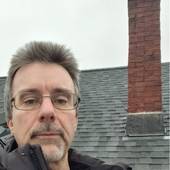Recently I was involved in some debate about home inspection methods, specifically concerning walking roofs. A point that came up during this discussion was where an inspector derives his methods and standards of home inspection. This is a diverse subject, but really there are only a few sources of standards in the home inspection profession.
 The American Society of Home Inspectors (ASHI) authored the first set of home inspection standards of practice and an accompanying code of ethics about thirty years ago. These first home inspection standards have been and continue to be used by many home inspectors. The ASHI standards have been used in some form or another by many states that have licensing or other home inspection regulation. Similar standards by other national home inspection associations such as NAHI and INACHI, are also prevalent and used by many home inspectors nationally and internationally.
The American Society of Home Inspectors (ASHI) authored the first set of home inspection standards of practice and an accompanying code of ethics about thirty years ago. These first home inspection standards have been and continue to be used by many home inspectors. The ASHI standards have been used in some form or another by many states that have licensing or other home inspection regulation. Similar standards by other national home inspection associations such as NAHI and INACHI, are also prevalent and used by many home inspectors nationally and internationally.
Smaller, state specific groups have also formed home inspection standards. This is especially true of states such as California where no licensing or regulation currently exists. CREIA California Real Estate Inspection Association is a great example. In fact CREIA is very well known through out the country and is itself over 30 years old.
For states with licensing or formal regulation, such as Connecticut where I do inspections, a set of State Standards exists. State mandated SOPs supersede any national or other standards as they are in effect law.
But what about those states without licensing and or regulation? What home inspection standards should a home inspector adopt? The simple and logical answer is any one of the national association standards or as in the case of California a state association standard.
Why would using one of these known set of standards make sense and in essence protect the consumer and the home inspector from possible legal repercussions. In a word precedent. As just discussed there are national and state associations with home inspection standards that go as far back as 30 years. These standards have been home inspection industry standards for basically that long and continue to be where no formal regulation currently exists.
Therefore it would obviously be ludicrous for any home inspector to shun these known standards and instead use a set of "customized" standards of practice derived from non industry professionals such as attorneys or insurance providers. Perhaps even an inspector authored set of inspection standards. There would undoubtedly be more risk to an inspector operating under such non customary "standards" and more importantly to the consumer who hires that inspector.
Standards set the ground work for how the home inspection is to be conducted. They are in themselves a form of contract. They set the expectations and the scope of the work to be performed. In this way the two parties involved, the home inspector and consumer, have an understanding.
 This then leads to the question of referring or using home inspectors that choose to reject precedent and substitute their own, unique set of home inspection standards. In fact the choice of using customized standards leads to many other questions such as;
This then leads to the question of referring or using home inspectors that choose to reject precedent and substitute their own, unique set of home inspection standards. In fact the choice of using customized standards leads to many other questions such as;
What are covered in these unique standards?
Are they available for review?
Are they time tested and defensible?
Will they hold up under scrutiny?
All valid questions, but the most important question is whether to place trust in a company that so chooses to operate in this manner. That is not to say that such a company is unscrupulous, performs shoddy inspections or is less knowledgeable than other companies. No, that can not be extrapolated from a set of standards, but would anyone trust a doctor who challenged convention and did things by his own set of rules? How about an attorney or a psychologist? These professions all require extensive education and training plus competency testing and adhering to a strict code of ethics. Consequently what can be said for the professional who then chooses to ignore these requirements?
There is very similar criterion, all though not as in depth, in most of the 34 states that currently regulate home inspectors. For those states that do not at this time regulate home inspectors does it not stand to reason that good, conscientious home inspectors should and will abide by a known, tried and true set of home inspection standards and code of ethics.
Ultimately is it sensible to place confidence in a home inspection company that does things their own way under the guidance of non industry professionals. It is a point definitely worth considering before calling or hiring such a free spirited company. Making up your own rules was never acceptable on the play ground and it is undeniably not acceptable in the world at large.
James Quarello
JRV Home Inspection Services, LLC

To find out more about our other high tech services click on the links below:
| Learn more about our Infrared Thermal Imaging & Diagnostics services. | Learn more about our energy audits, the Home Energy Tune uP®. |

Comments(14)